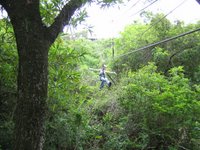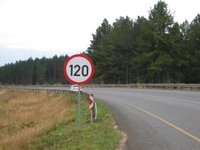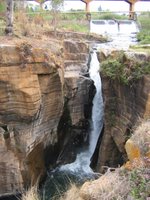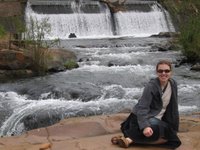A Day at the Beach
 It may be the bleak mid-winter back home, but not in Africa. On Saturday, our colleagues invited us to the beach at Marracuene. What a great way to see a bit more of Mozambique and relax at the same time. Mozambique hugs the coast of the Indian Ocean, and is reputed to have great beaches.
It may be the bleak mid-winter back home, but not in Africa. On Saturday, our colleagues invited us to the beach at Marracuene. What a great way to see a bit more of Mozambique and relax at the same time. Mozambique hugs the coast of the Indian Ocean, and is reputed to have great beaches.
Of course, since Maputo is a port city, it's right on the ocean but the locals tell us that the beaches are better a bit out of the city.
Foreigners have advised us to get even further out of the city.
As it turns out, getting to the Marracuene beach is no picnic. First, there was the ferry, they said. When we arrived at the docks, someone pointed to the ferry. I laughed, not for a second taking her seriously. That's clearly a raft, and a sketchy one at that. Before I had a chance to ask when the ferry would arrive, the man on the little raft waived our truck on board.
First, there was the ferry, they said. When we arrived at the docks, someone pointed to the ferry. I laughed, not for a second taking her seriously. That's clearly a raft, and a sketchy one at that. Before I had a chance to ask when the ferry would arrive, the man on the little raft waived our truck on board.
Our truck barely fit, with our wheels hanging over the edge, but that seemed to concern only two passengers: Laura and myself.
I couldn't help but think that they would probably keep shuttling cars across the channel until the day the ferry sunk. And wondered when the last time the safety inspector had come to visit. They do have safety inspectors, right? After the short ferry ride, we had to drive along a road for about 45 minutes. Again, "road" was a poor choice of words. Between dodging small craters and herds of cattle, we likely would have been better off driving in the fields beside the road. Which, at some particularly rough points, our colleague, Nate, actually did.
After the short ferry ride, we had to drive along a road for about 45 minutes. Again, "road" was a poor choice of words. Between dodging small craters and herds of cattle, we likely would have been better off driving in the fields beside the road. Which, at some particularly rough points, our colleague, Nate, actually did.
Then we got to the sandy stretch, which reminded me of the morning after an all-night snow storm in Canada, before the snowploughs had had a chance to clear the streets. We eventually arrived in-tact, and the beach was magnificent. Given the journey, it shouldn't have come as a big surprise that the beach was empty. We had it all to ourselves. Just us and our colleagues. And those little crabs playing in the surf, allowing themselves to get swept up in the warm salty water and riding it down again, like they were at an amusement park.
We eventually arrived in-tact, and the beach was magnificent. Given the journey, it shouldn't have come as a big surprise that the beach was empty. We had it all to ourselves. Just us and our colleagues. And those little crabs playing in the surf, allowing themselves to get swept up in the warm salty water and riding it down again, like they were at an amusement park.
Many people tend to think of Africa as a poor, dry, starving continent. Even a war-torn continent. But it's also a lovely continent, with much natural beauty to boast.






















